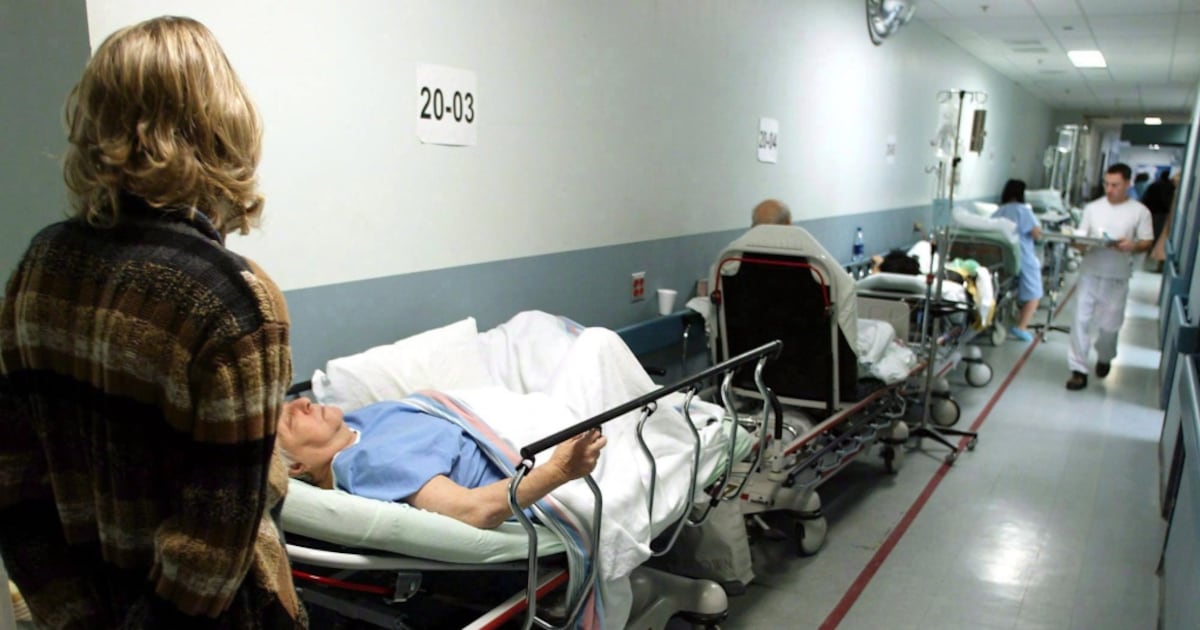Health
Know When to Visit the ER: Insights from Health Experts

As flu season sets in, emergency rooms in Montreal are experiencing increased patient volumes, often filled with individuals who may not require immediate medical attention. Dr. Mitch Shulman, an emergency medicine specialist at the McGill University Health Centre, emphasizes that many healthy individuals with common colds risk exposing themselves to more serious illnesses by visiting the ER.
Dr. Shulman offers a straightforward perspective on when to seek emergency care. “If you’re a normal, healthy person and you have a cold, a cold will last five to seven days whether I treat it or not,” he states. Understanding when to stay home can alleviate pressure on emergency services.
When to Stay Home
Individuals who are otherwise healthy should consider remaining at home for specific symptoms. Dr. Shulman advises against visiting the ER for nausea, vomiting, or diarrhea if hydration can be maintained. Similarly, if someone is experiencing a sore throat but can swallow comfortably, the emergency room should not be the first stop. Other symptoms like a blocked or runny nose and mild cough also do not necessitate a trip to the hospital.
Conversely, there are certain situations that warrant immediate medical attention. Individuals who are elderly or immunocompromised—such as those with conditions like cancer, diabetes, or heart disease—should visit the ER if cold symptoms persist beyond the typical duration or worsen unexpectedly. Dr. Shulman notes, “The only time we would be concerned about someone who has symptoms of a ‘cold’ is if they have a compromised immune system or if it’s more than five to seven days and it’s still there.”
Recognizing Emergency Symptoms
Several critical signs require urgent medical evaluation. Dr. Shulman outlines that anyone experiencing symptoms indicative of a heart attack or stroke should seek immediate care. Symptoms such as sudden and severe chest pain, difficulty breathing, or fainting may signal a heart attack. He adds, “If you have the worst headache you’ve ever had or a very high fever that isn’t responding to medication, you need to see a doctor.”
For stroke, early recognition is essential. Symptoms may include confusion, difficulty speaking, and sudden numbness or paralysis. “The faster you get to an emergency room, the better the chances are that we can reverse the effects of the stroke,” Dr. Shulman explains, underscoring the importance of prompt action.
Parents of young children face unique challenges regarding healthcare decisions. Dr. Shulman advises that if a baby under one year old has a fever, parents should consult a healthcare professional without hesitation. “If in doubt, especially with a child under the age of one, do not hesitate to go to the emergency room,” he stresses. Other concerning symptoms for children include an inability to keep liquids down, severe vomiting, or diarrhea.
Alternatives to the ER
Instead of heading to the emergency room, Dr. Shulman suggests that individuals explore other healthcare resources. Pharmacies can provide care for common illnesses, while local clinics may offer appointments through platforms such as Clic Santé. For additional guidance, individuals can contact the Info-Santé 811 line, which provides information and advice on healthcare options.
Dr. Shulman highlights the need for individuals to be aware of available healthcare resources in their communities. “Is your local health clinic open Friday night, Saturday, Sunday? Are they able to do X-rays?” he asks, reminding the public that understanding local options can help avoid unnecessary ER visits.
As flu season progresses, awareness of when to seek emergency care can significantly impact the efficiency of healthcare services. By following these guidelines from healthcare professionals, individuals can make informed decisions that prioritize both their health and the well-being of the healthcare system.
-

 World4 months ago
World4 months agoScientists Unearth Ancient Antarctic Ice to Unlock Climate Secrets
-

 Entertainment4 months ago
Entertainment4 months agoTrump and McCormick to Announce $70 Billion Energy Investments
-

 Lifestyle4 months ago
Lifestyle4 months agoTransLink Launches Food Truck Program to Boost Revenue in Vancouver
-

 Science4 months ago
Science4 months agoFour Astronauts Return to Earth After International Space Station Mission
-

 Technology2 months ago
Technology2 months agoApple Notes Enhances Functionality with Markdown Support in macOS 26
-

 Top Stories3 weeks ago
Top Stories3 weeks agoUrgent Update: Fatal Crash on Highway 99 Claims Life of Pitt Meadows Man
-

 Sports4 months ago
Sports4 months agoSearch Underway for Missing Hunter Amid Hokkaido Bear Emergency
-

 Politics3 months ago
Politics3 months agoUkrainian Tennis Star Elina Svitolina Faces Death Threats Online
-

 Technology4 months ago
Technology4 months agoFrosthaven Launches Early Access on July 31, 2025
-

 Politics4 months ago
Politics4 months agoCarney Engages First Nations Leaders at Development Law Summit
-

 Top Stories1 week ago
Top Stories1 week agoFamily Remembers Beverley Rowbotham 25 Years After Murder
-

 Entertainment4 months ago
Entertainment4 months agoCalgary Theatre Troupe Revives Magic at Winnipeg Fringe Festival





















